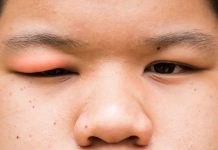Anxiety is a normal emotion. It’s your brain’s way of reacting to stress and alerting you of potential danger ahead.
Everyone feels anxious now and then. For example, you may worry when faced with a problem at work, before taking a test, or before making an important decision.
Occasional anxiety is OK. But anxiety disorders are different. They’re a group of mental illnesses that cause constant and overwhelming anxiety and fear. Too much anxiety can make you avoid work, school, family get-togethers, and other social situations that might trigger or worsen your symptoms.
With treatment, many people with anxiety disorders can manage their symptoms.
Types of Anxiety Disorders
There are several types of anxiety disorders, including:
Generalized anxiety disorder
You feel excessive, unrealistic worry and tension about typical everyday tasks. These feelings can be constant.
Panic disorder
You feel sudden, intense fear that brings on a panic attack. During a panic attack you may break out in a sweat, have chest pain, and have a pounding heartbeat (palpitations). Sometimes, you may feel like you’re choking or having a heart attack. If you have an attack, you might be afraid of having another and might try to avoid certain triggers.
Social anxiety disorder
Also called social phobia, this is when you feel overwhelming worry and self-consciousness about everyday social situations. You obsessively worry about others judging you or being embarrassed or teased. If you have this disorder, you might stay away from social settings.
Phobias
You feel an intense fear of a specific object or situation, such as heights or flying. The fear goes beyond what’s appropriate and may cause you to avoid ordinary situations.
You have an intense fear of being in a place where it seems hard to escape or get help if an emergency occurs. For example, you may panic or feel anxious when on an airplane, on public transportation, in closed spaces, standing in a line with a crowd, or just being away from your home.
Separation anxiety
Little kids aren’t the only ones who feel scared or anxious when a loved one leaves. Anyone can get separation anxiety disorder. If you do, you’ll feel very anxious or fearful when a person you’re close to leaves your sight. You’ll always worry that something bad may happen to your loved one. If you’re older, you may have this anxiety after a traumatic event.
This is a type of social anxiety in which young kids who talk normally with their family don’t speak in public, such as at school.
Medication-induced anxiety disorder
If you use certain medications or illegal drugs or withdraw from certain drugs, you may experience some symptoms of anxiety disorder.
Unspecified and other specified anxiety disorders
With these conditions, your anxiety may not fit into any other category but is significant enough to cause stress and other symptoms.
Anxiety Disorder Symptoms
The main symptom of anxiety disorders is excessive fear or worry. Anxiety disorders can also make it hard to breathe, sleep, stay still, and concentrate. Your specific symptoms depend on the type of anxiety disorder you have.
Causes of Anxiety Disorder
There isn’t a complete understanding of where anxiety disorders come from. Some causes of anxiety disorders include:
Genetics. Anxiety disorders can run in families.
Brain chemistry. Some research suggests anxiety disorders may be linked to faulty circuits in the brain that control fear and emotions.
Environmental stress. This refers to stressful events you have seen or lived through. Life events often linked to anxiety disorders include childhood abuse and neglect, the death of a loved one, or being attacked or seeing violence.
Drug or alcohol withdrawal or misuse. Certain drugs may be used to hide or decrease certain anxiety symptoms. Anxiety disorder often goes hand in hand with alcohol and substance use.
Medical conditions. Some heart, lung, and thyroid conditions can cause symptoms similar to anxiety disorders or make anxiety symptoms worse.
Certain medications. Withdrawal from certain medications, such as anti-anxiety drugs, can cause anxiety symptoms.
Anxiety Disorder Diagnosis
If you have symptoms, your doctor will examine you and ask questions about your medical history.
Source: webmd.com









